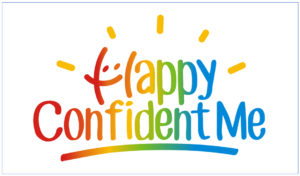Psychologist and child behaviourists have long observed that when it comes to friendships, young girls display ‘relational aggression’ far more than their male peers. This is when one person intentionally hurts someone that they have a close relationship with through their words and/or actions. Common examples of this include gossiping, name-calling, exclusion, teasing etc., and most girls will experience at least one, and sometimes all, of these things at some point during their time at school. An article entitled ‘Mean Girl Behaviour: How To Stop Relational Aggression Among Girls’ has attempted to understand what causes such behaviour and why it appears to be more prevalent in young girls than young boys.
As parents to three girls ourselves, we felt that this is an important subject to explore because we know just how common and damaging relational aggression can be. In the short-term it can cause anxiety, fear and upset, and in the long-term it can even lead to depression and low self-esteem. So the impact that it has can be quite profound in that it can cause girls to lose confidence and belief in themselves, which can also make them wary and distrustful of forming relationships in the future.
As well as showing that girls are more likely to use relational aggression in relationships than boys, there is also evidence to suggest that they feel it more acutely when these relationships break down. Girls tend to crave emotional connectivity with other girls and they forge strong and intense relationships as a result, so this may offer some explanation as to why it can be so devastating for them when these relationships end or turn sour. The social groups formed by young girls also tend to be based on a very obvious hierarchy, and so when one girl feels that her position within this hierarchy is being threatened by another they verbally retaliate by lashing out with hurtful words. So the question is, how can we encourage our daughters to behave kindly and respectfully towards others in order to develop healthy and long-lasting friendships?
Here are our top 5 tips for preventing relational aggression in girls and helping our children better cope with such bullying:
- Encourage empathy in your children so that they start to understand the effect that their behaviour has on those around them. A really simple effective way of doing this is to ask your child as often as possible: “How would you feel if you were in that person’s shoes?” or, “How would you feel if someone acted in that way towards you?”.
- Try to become more aware of when your child is using relational aggression. You may notice that they have certain triggers, and when you can identify their triggers you can then focus on redirecting their energies in a more positive way. So for example, rather than give them a verbal telling off, you can initiate a problem-solving session, or if you feel it’s appropriate you could implement logical and/or delayed consequences.
- We may not be aware that we’re being verbally aggressive towards them and we’ll often model giving the wrong example without even realising it. We might say things like “I’m so disappointed in you”, “Why are you so naughty all of the time?” or we may even chastise them with phrases such as “Stop behaving like such a brat!” or “Bad girl!”. By using these phrases, we are inadvertently sending our children the message that it’s ok to treat other people disrespectfully, so they’ll start replicating this behaviour within their own social groups. Therefore, one of the most powerful ways of improving their behaviour is to model showing respect for others ourselves.
- Give your child lots of opportunities to socialise – the more they interact with others, the more confidence they will gain in their social skills.
- Ask them what character traits they think are needed to be a good friend, as this will help your child understand how to develop a strong and long-lasting friendship, or share stories about people who have forged strong friendships with others.
- Teach them that other people’s opinions are only opinions. They should take them as such and stand strong in the face of bullying. A great thing to teach them is to be able to say with confidence: “Thank you for sharing, that is your opinion” and stop interacting with the person who is being unkind, as any answer is likely to just generate retaliation and escalate. Teaching kids how to use assertive language is a great way of empowering them to better cope when people use hurtful words against them. Other examples of assertive language that your child can use in the face of bullying are: “Really? Thanks”, “Are you having a bad day?” or “That’s your opinion and you can keep it!”. It’s also useful to emphasise that people who bully others do so because they are usually feeling hurt, angry and lonely themselves and don’t know how to deal with their strong emotions.













































